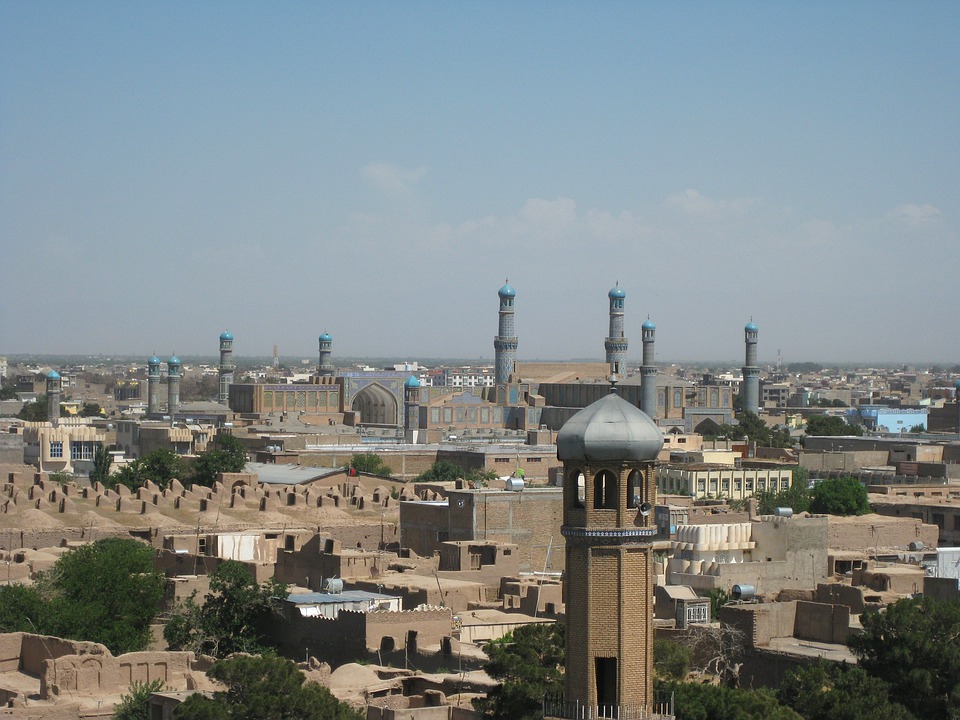The country has faced a worsening economic and humanitarian crisis for more than a year since the Taliban retook control of Afghanistan. A US panel finds that the conditions for religious freedom have also worsened with the insurgent group’s enforcement of its version of Islam.
The US Commission on International Religious Freedom said Tuesday that freedom of religion in Afghanistan has “drastically deteriorated” under Taliban rule. The panel found that the Sunni Muslim Taliban’s “harsh enforcement” of their version of Islam violates the religious freedom of many Afghans.
The panel that was established issued its report nine days after the insurgent group marked its one-year anniversary of retaking Kabul and returning to power on the heels of the US-led military withdrawal that put an end to almost 20 years of conflict. The assessment noted that the Taliban pledged to protect all ethnic and religious groups in Afghanistan.
“Religious freedom conditions in Afghanistan have drastically deteriorated,” with the insurgent group reinforcing “harsh restrictions on all Afghans” based on their hardline interpretation of Islam.
Those who are negatively affected by this include religious minorities, Afghans who have different interpretations of Islam, those who do not practice any faith, women, and the LGBTQ community.
The report went on to note that the Taliban is responsible for the deaths of dozens of the Hazara ethnic minority that practice Shiite Islam, by failing to protect them from attacks from its rivals, the regional faction of the Islamic State militant group.
Both Taliban and the Islamic State have also targeted Sufis, who practice mystical Islam, and the report noted that the insurgent group denied “the existence of a Christian community” that worships in hiding.
Previously, three sources familiar with the matter said the administration of US President Joe Biden would move forward with discussions on releasing the billions of dollars of Afghanistan’s foreign-held assets.
The decision to move forward also comes despite frustrations with the Taliban and Afghan central bank, as well as the presence of late al Qaeda leader Ayman al-Zawahiri in Kabul.
The decision also is in light of the concern in Washington over Afghanistan’s economic and humanitarian crisis, as the United Nations has warned that nearly half of the 40 million people in Afghanistan risk suffering “acute hunger” in the coming winter months.



 Trump Administration Appeals Court Order to Release Hudson Tunnel Project Funding
Trump Administration Appeals Court Order to Release Hudson Tunnel Project Funding  Nicaragua Ends Visa-Free Entry for Cubans, Disrupting Key Migration Route to the U.S.
Nicaragua Ends Visa-Free Entry for Cubans, Disrupting Key Migration Route to the U.S.  Anutin’s Bhumjaithai Party Wins Thai Election, Signals Shift Toward Political Stability
Anutin’s Bhumjaithai Party Wins Thai Election, Signals Shift Toward Political Stability  Trump Says “Very Good Talks” Underway on Russia-Ukraine War as Peace Efforts Continue
Trump Says “Very Good Talks” Underway on Russia-Ukraine War as Peace Efforts Continue  Trump’s Inflation Claims Clash With Voters’ Cost-of-Living Reality
Trump’s Inflation Claims Clash With Voters’ Cost-of-Living Reality  Bosnian Serb Presidential Rerun Confirms Victory for Dodik Ally Amid Allegations of Irregularities
Bosnian Serb Presidential Rerun Confirms Victory for Dodik Ally Amid Allegations of Irregularities  U.S. Lawmakers to Review Unredacted Jeffrey Epstein DOJ Files Starting Monday
U.S. Lawmakers to Review Unredacted Jeffrey Epstein DOJ Files Starting Monday  Trump Congratulates Japan’s First Female Prime Minister Sanae Takaichi After Historic Election Victory
Trump Congratulates Japan’s First Female Prime Minister Sanae Takaichi After Historic Election Victory  Trump Lifts 25% Tariff on Indian Goods in Strategic U.S.–India Trade and Energy Deal
Trump Lifts 25% Tariff on Indian Goods in Strategic U.S.–India Trade and Energy Deal  Japan Election 2026: Sanae Takaichi Poised for Landslide Win Despite Record Snowfall
Japan Election 2026: Sanae Takaichi Poised for Landslide Win Despite Record Snowfall  India–U.S. Interim Trade Pact Cuts Auto Tariffs but Leaves Tesla Out
India–U.S. Interim Trade Pact Cuts Auto Tariffs but Leaves Tesla Out  Trump Slams Super Bowl Halftime Show Featuring Bad Bunny
Trump Slams Super Bowl Halftime Show Featuring Bad Bunny  China Warns US Arms Sales to Taiwan Could Disrupt Trump’s Planned Visit
China Warns US Arms Sales to Taiwan Could Disrupt Trump’s Planned Visit  New York Legalizes Medical Aid in Dying for Terminally Ill Patients
New York Legalizes Medical Aid in Dying for Terminally Ill Patients  Trump Allows Commercial Fishing in Protected New England Waters
Trump Allows Commercial Fishing in Protected New England Waters  Taiwan Says Moving 40% of Semiconductor Production to the U.S. Is Impossible
Taiwan Says Moving 40% of Semiconductor Production to the U.S. Is Impossible  Trump Signs Executive Order Threatening 25% Tariffs on Countries Trading With Iran
Trump Signs Executive Order Threatening 25% Tariffs on Countries Trading With Iran 































